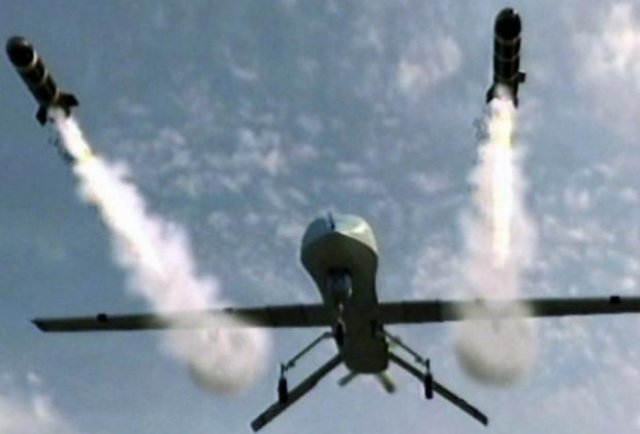The Trump administration plans to reinterpret a Cold War-era arms agreement between 34 nations with the goal of allowing U.S. defense contractors to sell more American-made drones to a wide array of nations, three defense industry executives and a U.S. official told Reuters.
The policy change, which has not been previously reported, could open up sales of armed U.S. drones to less stable governments such as Jordan and the United Arab Emirates that in the past have been forbidden from buying them under the 33-year-old Missile Technology Control Regime (MTCR), said the U.S. official, a former U.S. official and one of the executives. It could also undermine longstanding MTCR compliance from countries such as Russia, said the U.S. official, who has direct knowledge of the policy shift.
Reinterpreting the MTCR is part of a broader Trump administration effort to sell more weapons overseas. It has overhauled here a broad range of arms export regulations and removed the U.S. from international arms treaties including the Intermediate-Range Nuclear Forces Treaty and the Open Skies Treaty.
Sidestepping the accord would allow U.S. defense contractors General Atomics Aeronautical Systems Inc and Northrop Grumman Corp to break into new markets currently dominated by less sophisticated offerings from China and Israel, which do not participate in the MTCR.
Heidi Grant, the Pentagon’s Director of Defense Technology Security Administration, declined to comment on the pending MTCR policy change but said the U.S. military is eager to see drone sales expanded to more countries. Such sales would bolster the militaries of allies and replace drones sales from other nations, she said.
“If we are unable to meet this growing demand, we shoot ourselves in the foot,” Grant told Reuters.
She said the drones would help allies fight terrorism, establish border control and generally help stop threats before they reach the United States. Grant declined to name specific nations the Pentagon believes should get more U.S.-made weapons.
The State Department, which makes final decisions on drone sales, declined to comment on the policy change. The White House also declined to comment.
U.S. agencies including the departments of Commerce, Energy, Justice and Homeland Security agreed to the change in May, and the State Department is expected to approve the first drone sales under the new interpretation as soon as this summer, said the U.S. official and industry executives. They said the administration has already notified Northrop Grumman and General Atomics, the two major U.S. drone makers, of its plans.
The change is scheduled for a review by the White House National Security Council at its June 16 meeting, said one of the executives and a former U.S. official with knowledge of the internal policy discussions. The council is expected to support the policy change and discuss a possible White House announcement, they said.
The Trump administration is pressing ahead with its revamp of drone export policy under pressure from American manufacturers and despite objections from human rights advocates, who warn of the risk of fueling instability in hot spots including the Middle East and South Asia.
Expanded sales of armed drones could increase global conflicts, said Rachel Stohl, a weapons expert at the Stimson Center in Washington, a think tank focused on security issues that opposes weapons proliferation.
“Once they leave U.S. control, we lose our ability to influence how and where they are used,” she said.
Source: Reuters

